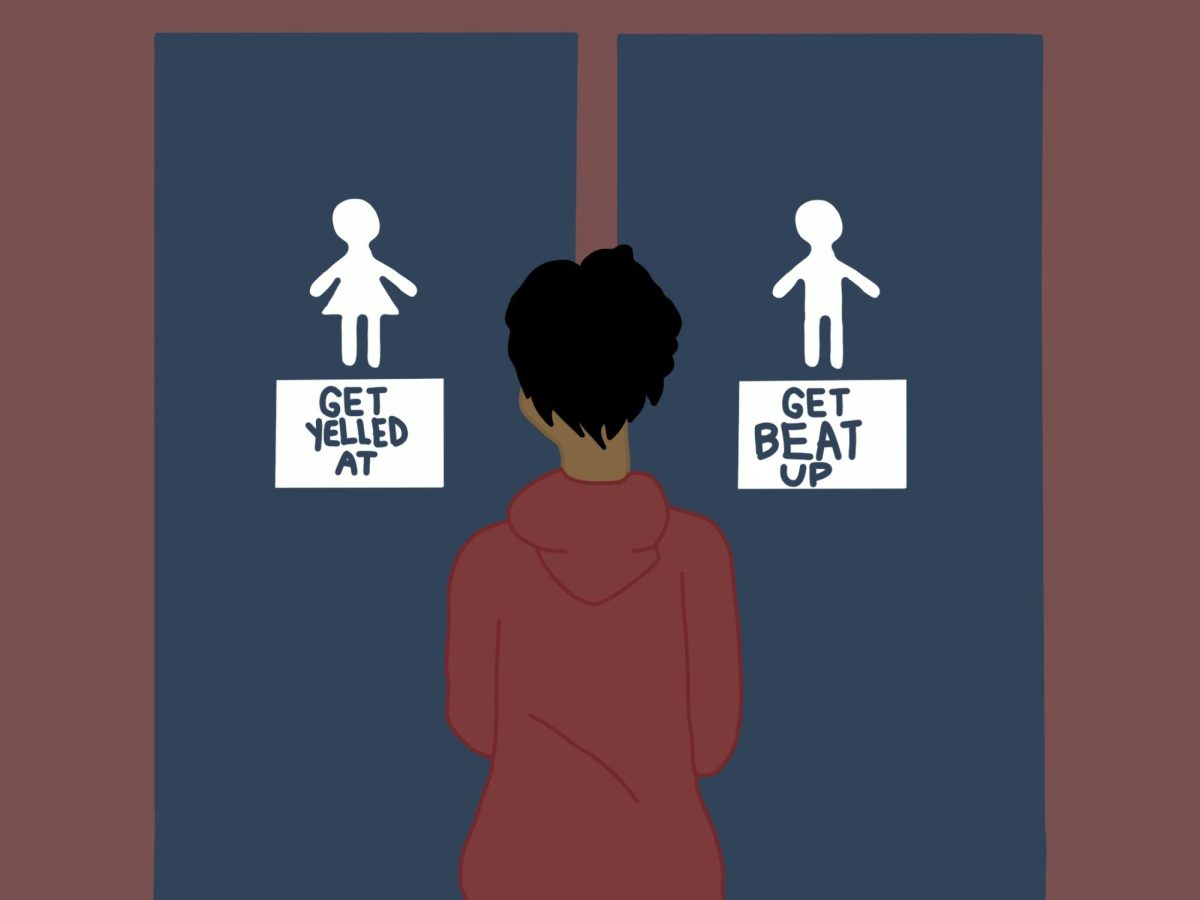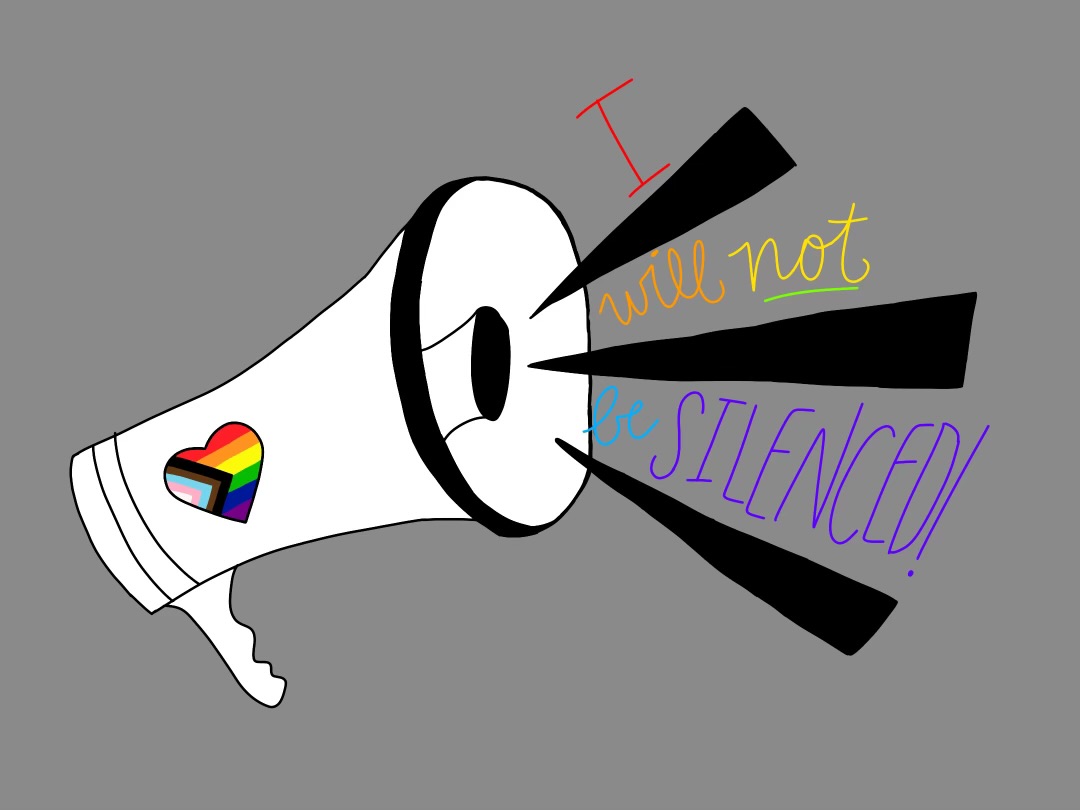

Sixteen-year-old Nex Benedict was a transgender student at Owasso High School in Owasso, Oklahoma. They used masculine (he/him) and gender-neutral (they/them) pronouns.
On Feb. 7, 2024, a fight broke out between Benedict and three female students in a bathroom at Owasso High School. A few minutes after the fight began, a staff member sent all students involved to the principal’s office and the nurse. School administrators contacted the students’ parents.
Benedict was then treated at the hospital before they were sent home. The next day, paramedics responded to a 9-1-1 call from the Benedict house, transferring Nex to the hospital where they later died that same day, Feb. 8, 2024.
A press release was later released by District Attorney, Stephan A. Kunzweiler. The results showed the cause of death was a suicidal overdose of Diphenhydramine (Benadryl) and Fluoxetine (Prozac).
Benedict’s death is tragic since they were only sixteen-years-old, but they were not the only youth to commit suicide due to transphobia.
Leo Campbell, Leelah Alcorn, Blake Brockington, Nova Dunn, and Zander Mahaffey were all transgender teens who committed suicide in the United States.
Their stories have been shared with the world, but most stories of transgender suicide go uncovered. It is important to raise awareness of the issue.
Around 300,000 students identify as transgender and 39% attempted suicide in 2023. Suicidal idealization can stem from numerous things in the transgender community. According to the Human Rights Campaign, common factors include familial animosity, a hostile political climate, and unhealthy socialization. These factors all have something in common: lack of support.
Metea senior T.J. Hoyt, a transgender man who uses he/him pronouns, understands the connection between a lack of acceptance and poor mental health.
“It’s not surprising that being treated poorly by others for being trans makes you feel bad about being trans,” Hoyt said. “With people being jerks [and/or] ignorant, it makes a transgender person all the more likely to feel bad about themselves and feel less comfortable with their own identity.”
According to Reuters, “peer, school, community, and family-based rejection, discrimination, and victimization are associated with greater risk for suicidal behaviors in transgender youth.” When faced with this type of rejection, transgender youth can feel like a burden to others and like they do not belong.
Support may come from a friend, family member, or another trusted person. Knowing that support comes from someone close helps reassure those who are transgender. Transgender teens who report being discriminated against are two times more likely to attempt suicide in comparison to those with support.
According to The Trevor Project, a non-profit focused on suicide prevention in LGBTQ+ youth, 70% of transgender youths face problems with anxiety.
People who are transgender may begin to feel anxious or depressed due to this. These negative emotions make it hard to accept themselves.
“What negatively impacts my mental health is my environment, and how people around me react or treat the concept of being transgender,” Hoyt said. Transgender youths often have a hard time coming to terms with their gender identity.
Another factor for poor mental health in transgender youth is not treating people kindly by using their preferred name or pronouns.
Transgender people may use a different name or different set of pronouns than what they were assigned at birth to express themselves better. However, people may not use someone’s preferred pronouns, causing harm to the transgender person.
In news articles reporting on Benedict’s death, reporters repeatedly used the name assigned to them at birth, also known as a deadname, and used she/her pronouns. Members of the transgender community recognize this as disrespectful towards Benedict. Their identity should be respected, especially after the tragedy. Across the country, while some people choose to respect trans peoples’ preferred names and pronouns, others do not. Some people choose not to respect transgender people by identifying them incorrectly, using hateful language towards them, or excluding them altogether.
Metea senior Kai Szala, a transgender man who uses he/him pronouns, understands the impact of not using a person’s name and pronouns.
“It brings me back to a time when I was incredibly uncomfortable in my own skin,” Szala said. “My old name and pronouns are attached to an identity that is so wildly different from who I am now.”
Legislators in Pennsylvania are debating House Bill 2155, which would give teachers the option to refuse to use a student’s preferred pronouns. This bill will support teachers who misidentify students and ensure they do not face punishment. If this law passes, transgender students may have to face disrespect from their teachers as well.
According to the Trevor Project, “[transgender] and nonbinary young people attempt suicide less when their pronouns are respected, when they are allowed to officially change the gender marker on their legal documents, and when they have access to spaces (online, at school, and home) that affirm their gender identity.”
Making people feel comfortable is one way to make them feel seen and heard by those around them. Using someone’s name and pronouns makes members of the transgender community more likely to feel seen.
“A simple step to help someone feel supported and accepted [is to respect a person’s identity],” Szala said.
Even if it doesn’t seem like much, it can be the difference between someone wanting to come to school each day or not.
From the lack of gender-neutral bathrooms, the security and safety of gendered bathrooms, or the lack of access to resources, it is a struggle to ensure that transgender people have access to the correct bathroom.
In Oklahoma, where Benedict resided, families of transgender students are trying to overturn Senate Bill 615. This bill required school bathrooms to be used according to a person’s gender assigned at birth and not their gender identity. These parents are trying to help support their children by getting access to preferred gendered bathrooms.
In Illinois, there is already a law that protects transgender and nonbinary students. According to the Illinois Department of Human Rights, “[schools] in Illinois may not discriminate against a student because of their gender-related identity, including treating them differently because their gender-related identity does not align with their designated sex at birth.” This law helps transgender and nonbinary students in Illinois be accepted in the classroom, hallways, and bathrooms.
Members of the trans community often have a hard time using gendered restrooms in public due to the fear of being judged.
“No matter what bathroom I use, I feel judged,” Szala said. “I’m not enough of a man to use the men’s bathroom, but using the women’s bathroom feels even worse like I’m invading someone else’s space.”
Metea administrators try to accommodate bathroom needs for those who are gender non-conforming. Students are allowed to use the staff’s gender-neutral bathrooms. These are located in each class house, but students can only use them after checking into the class house with their name, ID number, and the time. Once students are done using the restroom, they must also sign back out in the house office.
This may seem like a solution to a cisgender person, but this does not create an open and welcoming environment for those who are transgender or nonbinary. The policy adds unnecessary steps to the process of going to the bathroom.
Cisgender students have full access to the restroom without going through that long process. This can be unwelcoming to the students who identify as transgender.
“[I feel] really annoyed, honestly. People can walk in and use those other bathrooms, and I can’t even access those during lunch without a pass,” Hoyt said.
If Metea wants to create a more inclusive environment, they should eliminate the sign-in-and-out sheets in each house office. This would help transgender students feel less targeted for using the restroom.
Almost two-thirds of the transgender community report being bullied. Whether the bullying is online or in-person, members of the transgender community are picked on. People make fun of their identities, self-expression, fashion, and mannerisms. This bullying is not only done by peers, but by parents and teachers as well.
It is not uncommon for parents to not support their children when they come out as transgender. According to the Human Rights Campaign, “[transgender] children are more likely to experience anxiety, depression, and [are] at greater risk of substance abuse and homelessness when their immediate caregivers are rejecting or hostile.” Having the support of a trusted adult makes transgender youth feel safer. Feeling safe to be yourself in your own home is important. It is also important for transgender youth to feel comfortable at school.
Metea’s handbook does have precautions in place for bullying. According to the Metea handbook “[bullying] means any severe or pervasive physical or verbal act or conduct, including communications made in writing or electronically, directed toward a student or students.”
Students not using a person’s name and pronouns in a class, online, or in the halls can seem like nothing, but it is an act of hate speech according to members of the transgender community. This can scar members of the transgender community. It can make them feel as if something is wrong with them for wanting to be respected and accepted by their peers.
Similarly, when teachers do not respect the identity of a trans person in their classroom, teachers are teaching hate. They show by example that not respecting a person for who they are is okay. This does not create equity for transgender students compared to their cisgender peers.
Metea teachers and administrators say that they live by the mission statement of LIFE stating students should:
“Live with integrity
Inspire a passion for learning
Foster positive relationships
Expect equity and excellence for ALL”
The mission statement is used around the school and in classes to discuss the importance of equity. But how often do teachers take the time to follow the mission statement? While there are many teachers who respect using transgender students name and pronouns, but there are still many teachers who use deadnames and incorrect pronouns. Despite the move towards equity, this is an issue at Metea. By not respecting a person’s name and pronouns, they are not following the Metea LIFE or respecting the human right of free expression.
The safety of students who identify under the transgender umbrella is important. Taking steps in the direction of support could save the lives of transgender people. Metea administrators have taken strides in this direction of support but need to improve their allyship. They can make sure that the Metea community is always supporting transgender students by ensuring their correct name is used, pronouns are respected, a safe place to use the restroom, and no transgender youth are bullied for their identity.
While writing this article, I reflected on my own experiences as a transgender student: how I have faced bullying from students and teachers; how the sign-in system makes me feel like I am using the bathroom in a prison; and how not having my name and pronouns respected makes me feel like my insides are dying.
Between bullying, harassment, and suicide, transgender teens are having a hard time finding hope in the darkness. This can become too much for members of the transgender community. It is cruel to force the youth to face these hardships.
When people misgender and deadname me in school, it makes me feel less than others as if I am not a person. It makes me feel like I am not enough of a man and too much of a freak.
Other people’s words have hurt me and continue to hurt me. Teachers have refused to use my pronouns and have continuously called me “ma’am” after I asked them to stop.
My peers in the hall have screamed slurs at me for both my gender and my sexuality. People have told me I look too feminine to identify as a boy because I have chosen to dress or act a certain way. They have told me that I will never be a man. I have heard these things from teachers, students, my therapist, doctors, and even my own family.
These insults have stuck with me since I was little. I carry these insults and this hate with me every day, making me feel like I am not good enough and that I do not matter. These feelings can lead to many transgender teens committing suicide. I assume that Benedict had a hard time connecting with others due to their transgender identity. They may have had little to no support, causing them to feel hopeless and alone.
No matter how bad things seem as a transgender student, we are never alone. There are helpful resources to help transgender teens cope, process, and make a difference for themselves and their community. The Trevor Project and the Human Rights Campaign have good resources for students, teachers, and parents to support the transgender community.
Dr. Kelly Horn is a psychiatric social worker at the University of Illinois Chicago. She has done extensive research on gender and the LGBTQ+ community over the years. According to Dr. Horn, people should open up and use the media to their benefit.
“Often, it takes knowing a person who identifies as LGBTQ,” Horn said. “[It] is like a catalyst for people to get on board with being more of an ally.” It sounds simple, but starting small is the best way to make a change.
Horn also expressed the need to listen specifically to transgender youths.
“Why won’t we listen to children who are talking about their gender identity and sexuality?” Horn asked. Listening to youths about their identity and who they are is vital to building support for the transgender community. It is important to show support to youth with their identity. This will help decrease the number of transgender youths who face mental health issues and suicidal thoughts.
Another way you can help to support the transgender community is by taking action and speaking up.
Transgender Day of Remembrance (Nov. 20), Transgender Day of Visibility, (March 31) and Day of Silence (the second Friday in April) are examples of opportunities to show support. Allies use this day to help spread awareness for the transgender community.
While this is a good place to start learning and lifting your voice, it is important to lift your voice every day. Support the transgender community. Speak out. Express the importance of respecting the identities of the transgender community. Stand up for those who you see are not respected. Choose to respect our community yourself. Being transgender is not a choice, but choosing to accept our community is.







